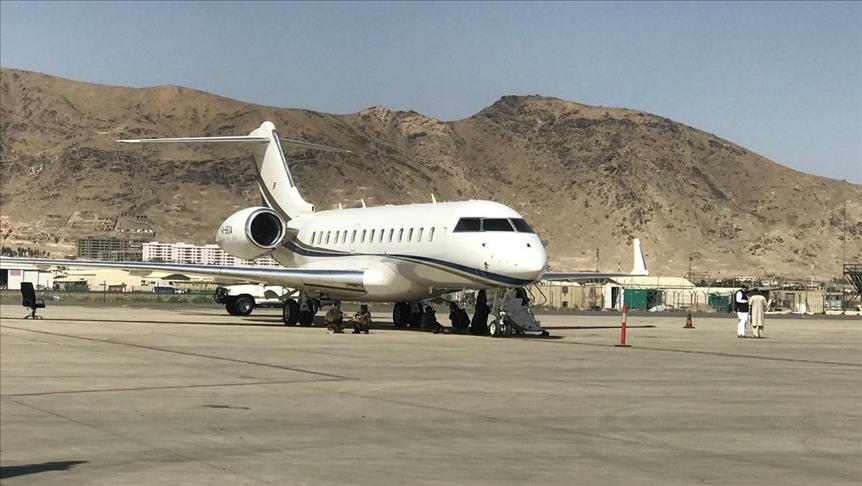Pakistan’s intelligence chief visits Afghanistan’s capital
Islamabad to raise issue of ‘cross-border’ attacks on security forces, intelligence official says
 Photo: Bilal Guler - Anadolu Agency
Photo: Bilal Guler - Anadolu Agency
KARACHI, Pakistan/KABUL, Afghanistan
A Pakistani delegation led by head of the country's premier spy agency – Inter Services Intelligence (ISI) – Lt. Gen. Faiz Hameed visited Kabul on Saturday to discuss a slew of issues with the Taliban leadership, according to local media and intelligence officials.
The delegation, according to Pakistani broadcaster Geo News, will meet senior Taliban leaders to discuss the latest developments in Afghanistan and future relations between the two countries.
The visit coincided with Taliban's efforts to put a governance structure in place in Kabul, following the pullout of the US and NATO forces after two decades, leaving a power vacuum in the war-raked country.
A senior intelligence official, who wished not to be named as he was not allowed to speak to media confirmed the visit, saying: "The delegation will raise several long pending issues, mainly the border management and the TTP (Tehreek-e-Taliban Pakistan) bases in Afghanistan.”
Inter-Services Public Relations, Pakistan Army's media wing, did not respond to Anadolu Agency's request for confirmation of the visit.
Pakistani, Taliban delegations meet in Doha
Suhail Shaheen, the Taliban’s spokesman in Qatar, said on Twitter that Sher Mohammad Abbas Stanikzai, deputy director of the group’s political office, and his delegation met with Pakistan Ambassador to Qatar Syed Ahsan Raza Shah and his delegation.
“Both sides discussed the current Afghan situation, humanitarian assistance, bilateral relations based on mutual interest and respect, reconstruction of Afghanistan and issues related to facilitating people’s movement at Torkham and Spin Boldak,” Shaheen said.
Islamabad closed the Torkham border crossing for Afghan nationals intending to arrive in Pakistan and only allows return of Afghans to their country.
Although the Spin Boldak-Chaman border crossing was opened for cross-border movement with valid travel documents, Pakistan on Thursday closed the border citing “security threats.”
Islamabad, which has long been demanding action against militants reportedly based inside Afghanistan and frequently attack Pakistani security forces, hopes an end to such attacks, following the Taliban's takeover.
However, a Pakistan army soldier was killed in a "cross-border" attack in northwestern Bajuar district earlier this week, according to Pakistan’s military.
Pakistan has long been accusing a "nexus" of Indian and Afghan intelligence agencies of patronizing the groups involved in cross-border attacks on its security forces.
The former Afghan government had denied the charges and itself accused Islamabad of patronizing the Taliban.
The TTP, the mother group of several militant outfits in Pakistan, was pushed to Afghanistan following a large-scale military onslaught in North Waziristan in 2014.
Although Islamabad contends it has no favorites in Afghanistan, its influence over the Taliban is viewed as crucial.
It was Pakistan that had arranged rare direct talks between Washington and the Taliban in December 2018, which led to the Doha peace deal in February 2020, and subsequently the withdrawal of foreign troops from the Afghan soil.
Islamabad had also facilitated the landmark first round of direct talks between the Afghan government and the Taliban in Pakistan in July 2015.
The process, however, broke down after the news of long-time Taliban leader Mullah Omar's death surfaced, triggering a bitter internal power struggle.
Former US President Donald Trump in August 2019 stepped up efforts to resume the long-stalled process, seeking Pakistan's help to end Washington's longest war in recent history.
Anadolu Agency website contains only a portion of the news stories offered to subscribers in the AA News Broadcasting System (HAS), and in summarized form. Please contact us for subscription options.








